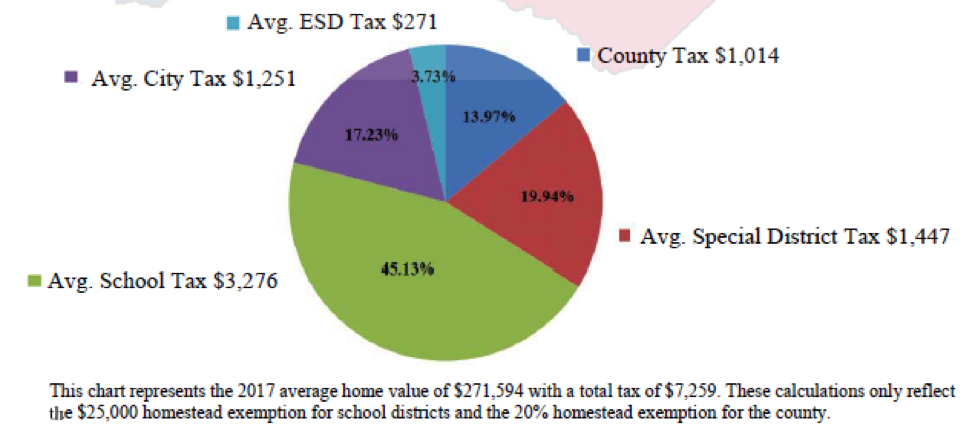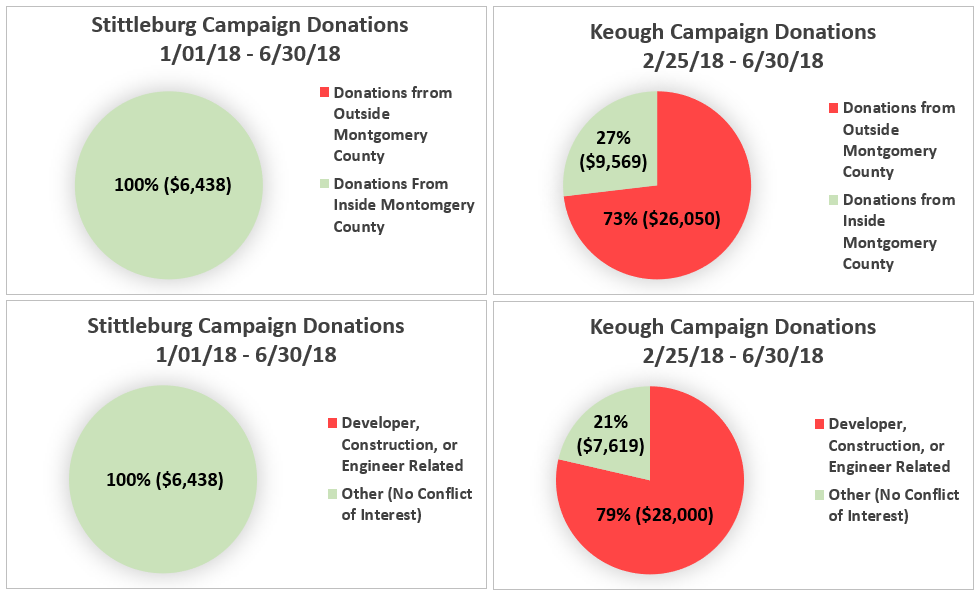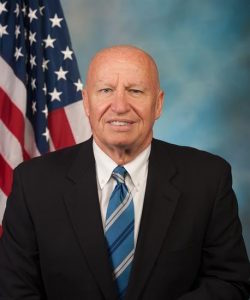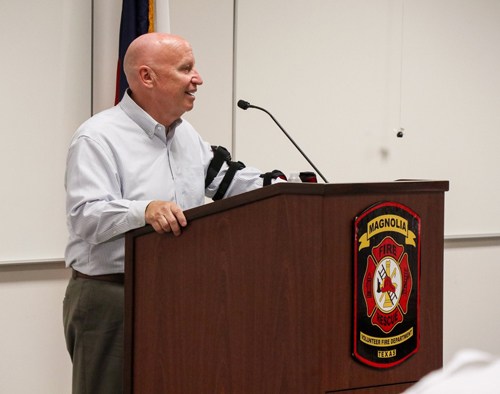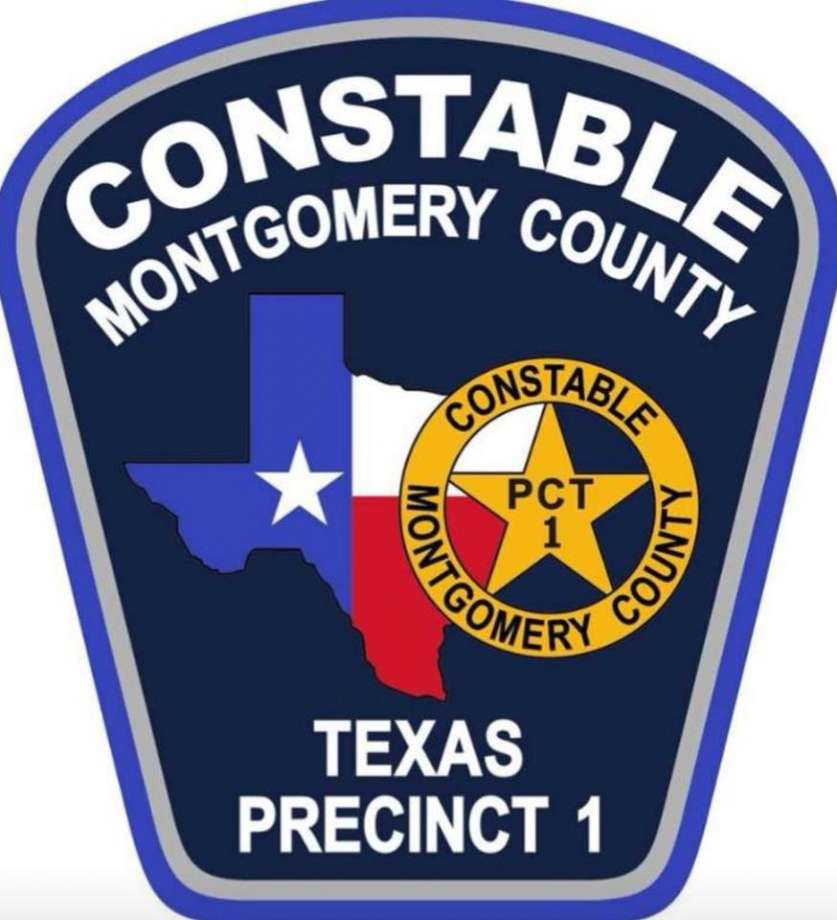Who is the More Fiscally Conservative Candidate for Montgomery County Judge?
A Look at Reducing Property Taxes and Other Key Issues
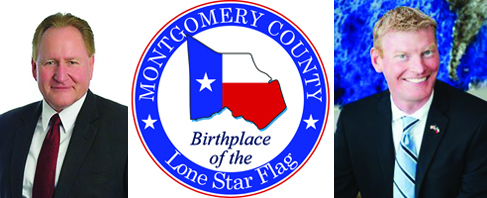 For the first time in 28 years, a Democrat is challenging a Republican for the position of County Judge in Montgomery County, Texas in the November elections. Both candidates claim fiscally conservative platforms. This contest presents a unique opportunity for voters to learn about and compare competing solutions to the most pressing issues facing residents of Montgomery County.
For the first time in 28 years, a Democrat is challenging a Republican for the position of County Judge in Montgomery County, Texas in the November elections. Both candidates claim fiscally conservative platforms. This contest presents a unique opportunity for voters to learn about and compare competing solutions to the most pressing issues facing residents of Montgomery County.
Why is this important? Conservatives value robust and open discourse and a competition of ideas to address the issues that matter to them most. Quoting Proverbs 27:17, “As iron sharpens iron, so one person sharpens another.” A debate between candidates Mark Keough (R) and Jay Stittleburg (D) on the merits of competing fiscally conservative approaches would sharpen the candidates and ultimately inure to the benefit of the elected county judge, the Commissioners Court, and the county residents.
So far, there have been no public debates between the two candidates. Prior to a scheduled debate in August, Keough declined the invite, saying, “The people know what we believe.” However, Stittleburg stated,“I look forward to any opportunity to be open and engaged with the citizens of Montgomery County and address any and all concerns brought to my attention...This is a partisan race about nonpartisan politics. This job is not about legislating; it’s about transparent, accountable spending of your tax dollars.”
Hopefully an opportunity will present itself soon, well in advance of the elections, to give Montgomery County voters a chance to see the candidates deliberate the issues and their proposed solutions. In the meantime, the following comparative analysis has been prepared based on information from the candidates’ websites and recent separate public appearances.
Mark Keough is currently state representative for Texas HD-15, senior pastor of The Woodlands Bible Church, and previously worked as a manager in car sales. Jay Stittleburg is a 15-year Navy submarine warfare veteran and lieutenant currently working as a project engineer and project manager in the oil and gas industry.
Both candidates tout fiscally conservative platforms with similar goals of lowering property taxes, eliminating wasteful spending, increasing government transparency, developing a transportation and mobility plan, serving the residents of Montgomery County over outsiders’ interests, and improving flood mitigation. However, some distinct differences in the candidates’ plans to achieve these goals warrant consideration and discussion.
Eliminating Wasteful Spending
A key requirement of any county judge candidate claiming they are a “fiscal conservative” is that they do everything in their power to reduce wasteful spending by the county government.
Stittleburg wants to build a “strategic five year plan” in the form of a living document that addresses planning and funding for mobility, infrastructure, public safety and flood mitigation, to proactively manage the anticipated future growth of the county. In regards to the county budget, he plans to “compile the data on the county debt service and the projected revenue and take the rest of the budget in a line by line evaluation to eliminate wasteful and unaccountable spending.” He says he will “trust but verify” by talking and working personally with managers and front line workers in each department the county funds to understand exactly what they do and to make sure they get the money they need and “not a penny more”.
Keough intends to implement zero-based budgeting, which would start all budgets from scratch and require each department to justify all of its expenses every year to eliminate wasteful spending. This process will require training by users and additional resources to implement correctly. While zero-based budgeting has achieved some success in the private sector, it was once implemented at the federal level by President Jimmy Carter and was ultimately removed by President Ronald Reagan in his first term because it proved to be time consuming and did not result in cost savings.
Reducing Property Taxes
While both candidates plan to eliminate wasteful spending in order to reduce county property taxes, it is important to consider that the county government’s portion only makes up about 14% of the average property tax bill in Montgomery County. This equates to about $49 per person per month in Montgomery County for all of the services the county provides. The largest portion of Montgomery County property taxes (roughly 45%) goes to local school districts, which has increased over the years as lawmakers in Austin have cut the proportion of funding the state provides to our public schools.
2017/2018 Montgomery County Budget Highlights
Stittleburg discussed this issue recently, saying “This thing is wholly out of whack…we have the school districts being underfunded by the state which is causing them to increase your taxes at the local level.” To address this driving factor behind property tax increases in Montgomery County, he plans to “continue developing relationships with our state representatives and senators to push for a responsible state budget that funds public education and infrastructure and lowers the tax burden on the residents of Montgomery County.”
Keough does not address this particular driving factor behind property tax increases in his platform for county judge, but in his time as state representative in Austin, he voted to pass a budget that decreased the state’s portion of public school funding. It stated, “Property values, and the estimates of local tax collections on which they are based, shall be increased by 7.04 percent for tax year 2017 and by 6.77 percent for tax year 2018.” This shifted more of the burden of funding education to local property taxpayers and led to an increase in property taxes. According to his website, he “authored legislation to address the many issues in the property tax appraisal system,” but “watched as good legislation which aimed to help Texas property owners with their rising tax bills died.”
Transportation and Mobility
As the population of Montgomery County continues to grow at a high rate, a proactive approach by the county judge to improve transportation and mobility is necessary to lessen the hassle of roadway congestion.
Stittleburg intends to work with the Commissioners Court to develop a “Roads Project Plan” that will show all the bond and non-bond infrastructure projects in the county precinct by precinct with key milestone dates, the status of the projects, and time frames for execution.
Keough intends to develop a countywide mobility plan that “does not duplicate efforts,” and says he will work to eliminate tolls and “leverage federal, state and budgeted local taxpayer dollars to fulfill the transportation infrastructure needs of Montgomery County.” He also says that all road bonds will have to be approved by a vote from Montgomery County residents.
On Transparency and Accountability
Both candidates say that they will work to create greater transparency and accountability in Montgomery County government. This is an important responsibility of the county judge, because one of the main duties of the job is voting on and awarding contracts that utilize tax dollars to improve infrastructure in the county. An environment of transparency is key, so that property taxpayers know they are getting their money’s worth in county services, and that the county is awarding contracts to firms because of the value of their services and not because they are friends with members of the Commissioners Court or donated to their campaigns.
Stittleburg recently said the county’s purchasing department should evaluate all vendor applications for contracts through bid-tabs, which would compare contracts like apples to apples in order to evaluate which company has the best price and is the most technologically sound. “This should be a no-brainer by the time it gets to the Commissioners Court. It shouldn’t be a matter of ‘is that your buddy Joe? Are we going to vote for this? …that’s not how it should work,” he said. Stittleburg also says that once a company earns a contract with the county, he will manage it by requiring key performance indicators and progress reports on a regular basis. He said that as county judge, he would make sure this entire process is as transparent as it can legally be and would ensure that the public is aware that they have access to oversight of the county’s awarding and management of vendor contracts to alleviate any perceptions of corruption.
Although Keough’s website says he “will work to create an environment of transparency that will eliminate the possibility of actual or perceived conflicts of interest,” he has not explained the specific plans of how he intends to do it.
Serving Montgomery County Residents over Outsider Interests
All of the aforementioned goals could be jeopardized if candidates happen to favor outsider interests over the best interests of the residents of Montgomery County. An example of this would be if the county judge votes to award a contract to a construction company to build a new road because that company donated thousands of dollars to his campaign. This could negatively impact residents if a “favored” company takes longer and charges more money to complete a road than a more competitive company selected through a more effective process.
Stittleburg recently revealed that he hasn’t accepted money from any company that would ever go for a contract with Montgomery County. “There’s a reason I do that; because I don’t want a perception out there, and I want to be able to go to sleep at night when I go home,” he said. He received $0 in donations from PACs and individuals working with developer, engineering, or construction companies, and a total of $0 (0%) of his campaign donations came from outside of Montgomery County during the period 01/01/18 thru 06/30/18. According to his most recent campaign finance report, Stittleburg received a total of $6,438 in donations during that period.
Keough says he “will immediately end the influence that outside interests have upon the decision-making ability of those who govern and will replace this practice with what is the will of the people of Montgomery County.” However, he received $28,000 in donations from PACs and individuals working for developer, engineering, or construction companies, and a total of $26,050 (73%) of his campaign donations came from outside of Montgomery County during the period 02/25/18 thru 06/30/18.
According to his most recent campaign finance report, he received $35,619 in total donations during that period.
Emergency Management and Flood Mitigation
The County Judges serves as the chief of emergency management during natural disasters in Texas. During momentous events like hurricanes and floods, it is critical that people can depend on the county judge to help provide key information, guidance, and relief in a reliable manner.
To mitigate flooding, Stittleburg says he will make sure that all flood maps in the county (some are from the 1960’s) are updated to reflect recent floods and utilize building codes and permits to reinforce accountable development. In addition to working with the San Jacinto River Authority and Harris County Flood Control District, he would also look to secure FEMA funding to construct new drainage channels and to utilize pumps (the kind that are used under overpasses).
To mitigate flooding, Keough says he will work with stakeholders from the county and region to look for solutions and “hold the SJRA’s feet to the fire,” to make sure they are providing flood control without raising taxes. He has also suggested dredging watersheds to improve water flow.
While both Keough and Stittleburg say they will work in a fiscally conservative manner to achieve the above goals as county judge, their plans differ in several ways. Some civil discourse between the two candidates could strengthen the ultimate officeholder’s plans to improve the county. Montgomery County residents should all want the best solutions for lower property taxes, less traffic congestion, greater government accountability and transparency, and better flood mitigation. Perhaps the candidates can be encouraged to engage in a public debate.
The election for County Judge will be held on November 6th, with early voting starting October 22th.
Information from the candidates’ websites and recent separate public appearances includes: Montgomery Co Republican Town Hall Meeting hosted by MediaGenics, County Judge Debate hosted by Montgomery County Gazette (Keough did not attend), jaystittleburg.com, and keough4texas.com


